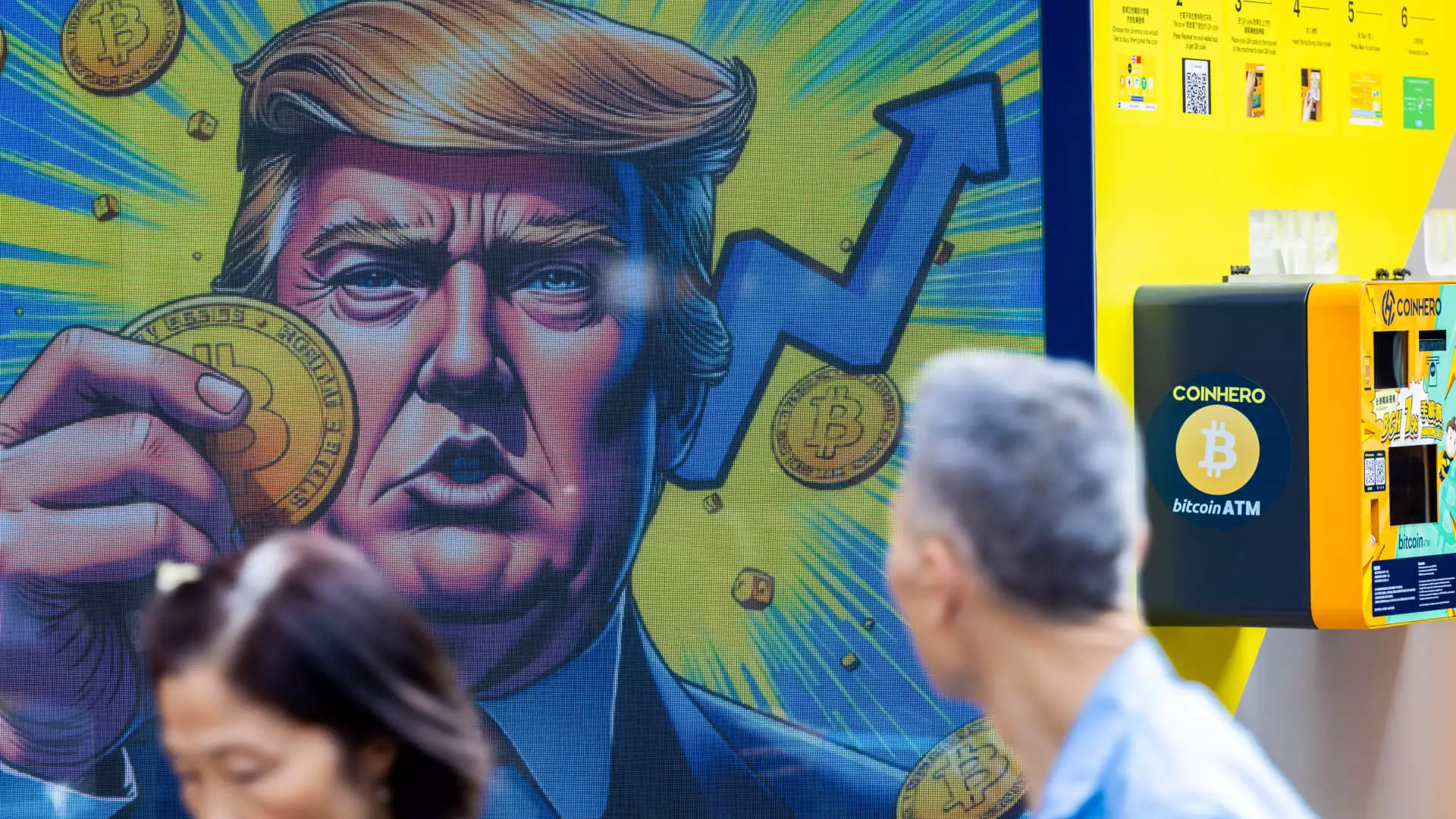In a twist of events that underscores the increasingly convoluted intersection of politics and finance, President Donald Trump and his associates have amassed an astonishing $900,000 in trading fees from the $TRUMP cryptocurrency token within just two days. According to data compiled by Chainalysis, this revenue surge was provoked by a bold announcement promising exclusive dining experiences with the president for the top 220 token holders. Such audacious strategies signify not just Trump’s foray into the cryptocurrency realm, but also highlight a burgeoning ethical minefield that many are finding difficult to navigate.
The notion of a cryptocurrency token promising a decadent dinner with a sitting president is itself laced with implications. While it might be viewed as innovative marketing, it effectively commodifies political access—a concept that should instill unease in any democracy. Through this initiative, Trump seems to be appealing to a demographic that equates financial power with political influence, thereby merging the two in an unprecedented manner that many are calling out as a serious breach of ethical norms.
Memecoins and Their Controversial Nature
Cryptocurrencies like the $TRUMP token belong to a unique class known as memecoins, largely characterized by their value being bolstered by internet culture and social media hype rather than by inherent utility. Such tokens have become increasingly popular, often generating more speculation than substance. The $TRUMP token’s rapid rise—shooting up more than 50% post-dinner announcement—demonstrates how quickly speculative assets can attract attention, but it also invites skepticism regarding their sustainability.
What troubles many is that approximately 80% of the $TRUMP token’s supply resides under the control of the Trump Organization and their affiliates. This centralization places the power squarely in the hands of a select few, leading some critics to argue that the potential for market manipulation looms large. Such scenarios raise significant questions about the viability of investment in these types of tokens and their overall integrity in the marketplace.
Legal vs. Ethical Dilemmas
The promotion of a dinner as a prize for token holders has drawn backlash from several political spheres, with critics like Senators Chris Murphy, Adam Schiff, and Elizabeth Warren decrying it as a “pay-to-play” scheme. While legal immunity exists for presidential financial interests, the ethical ramifications are severe. Experts like Delaney Marsco argue that a significant disconnect between criminal statutes and established ethical norms allows Trump to engage in activities that feel, if not overtly illegal, quite morally dubious.
The whole situation underscores a critical failure of regulatory frameworks: how can democracy safeguard itself when leaders leverage their political capital for financial gain? The infamous dinner announcement does not simply showcase an entrepreneurial spirit; it also reveals a deeper, unsettling pathway into the commodification of governance.
The Gateway to Foreign Influence
The ethical quandaries extend even further, particularly concerning some investors who hold ties to foreign exchanges that have evaded—or even been banned from—U.S. financial regulations. With growing scrutiny of the crypto space, the blend of foreign influence and financial speculation poses a serious risk to national sovereignty and integrity. For a country where headlines are often dominated by tales of foreign interference in democratic processes, this tangential involvement of foreign actors in the $TRUMP scheme raises the alarms loud and clear.
Furthermore, the promotion of a leaderboard showcasing the top token holders introduces a layer of intrigue and opacity. It not only creates the façade of transparency but also obscures the identities of those who could be vying for political access—all under the guise of a fun “dinner contest.”
Trump’s Role as a Crypto Champion
Having transitioned from skepticism to fervent advocacy for digital assets in his latest campaign, Trump seems to be strategically positioning himself as a leader who embraces innovation. This newfound enthusiasm does not simply reflect economic ambition; it may also serve as a call to rally support from the extensive cryptocurrency community, which has historically shown a proclivity for pouring finances into his initiatives.
However, the question remains: Can a crisis of ethics be ignored when intertwined with such economic zeal? While the crypto industry has indeed propelled the campaign financing landscape into an unpredictable frontier, the necessity for renewed ethical vigilance is paramount.
As the volatility of the cryptocurrency market continues to fluctuate amid weak regulatory oversight, the evolution of the $TRUMP token reflects not only a burgeoning financial trend but also a concerning shift in democratic norms. It raises urgent queries about the interactions between financial assets, political power, and the core values that uphold electoral integrity.

